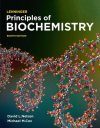About this book
The authoritative reference, written with a framework for understanding. Available for the first time in Achieve (Macmillan's new online learning tool), the definitive reference text for biochemistry Lehninger Principles of Biochemistry, 8e helps students focus on the most important aspects of biochemistry – the principles! Dave Nelson, Michael Cox, and new co-author Aaron Hoskins identify the most important principles of biochemistry and direct student attention to these with icons and resources targeted to each principle.
The 8th edition has been fully updated for focus, approachability, and up-to-date content. New and updated end-of-chapter questions – all available in the Achieve problem library with error-specific feedback and thorough solutions. These questions went through a rigorous development process to ensure they were robust, engaging and accurate.
Lehninger Principles of Biochemistry, 8e continues to help students navigate the complex discipline of biochemistry with a clear and coherent presentation. Renowned authors David Nelson, Michael Cox, and new co-author Aaron Hoskins have focused this eighth edition around the fundamental principles to help students understand and navigate the most important aspects of biochemistry. Text features and digital resources in the new Achieve platform emphasize this focus on the principles, while coverage of recent discoveries and the most up-to-date research provide fascinating context for learning the dynamic discipline of biochemistry.
Achieve supports educators and students throughout the full range of instruction, including assets suitable for pre-class preparation, in-class active learning, and post-class study and assessment. The pairing of a powerful new platform with outstanding biochemistry content provides an unrivalled learning experience.
Contents
Preface viii
1. The Foundations of Biochemistry
I STRUCTURE AND CATALYSIS
2. Water, the Solvent of Life
3. Amino Acids, Peptides, and Proteins
4. The Three-Dimensional Structure of Proteins
5. Protein Function
6. Enzymes
7. Carbohydrates and Glycobiology
8. Nucleotides and Nucleic Acids
9. DNA-Based Information Technologies
10. Lipids
11. Biological Membranes and Transport
12. Biochemical Signaling
II BIOENERGETICS AND METABOLISM
13. Introduction to Metabolism
14. Glycolysis, Gluconeogenesis, and the Pentose Phosphate Pathway
15. The Metabolism of Glycogen in Animals
16. The Citric Acid Cycle
17. Fatty Acid Catabolism
18. Amino Acid Oxidation and the Production of Urea
19. Oxidative Phosphorylation
20. Photosynthesis and Carbohydrate Synthesis in Plants
21. Lipid Biosynthesis
22. Biosynthesis of Amino Acids, Nucleotides, and Related Molecules
23. Hormonal Regulation and Integration of Mammalian Metabolism
III INFORMATION PATHWAYS
24. Genes and Chromosomes
25. DNA Metabolism
26. RNA Metabolism
27. Protein Metabolism
28. Regulation of Gene Expression
Abbreviated Solutions to Problems
Glossary
Customer Reviews
Biography
David L. Nelson is Professor in the Department of Biochemistry at the University of Wisconsin, Madison. He is also the Academic Program Director for university's Institute for Cross-college Biology Education. born in Fairmont, Minnesota, received his BS in chemistry and biology from St. Olaf College in 1964 and earned his PhD in biochemistry at Stanford Medical School, under Arthur Kornberg. He was a postdoctoral fellow at the Harvard Medical School with Eugene P. Kennedy, who was one of Albert Lehninger’s first graduate students. Nelson joined the faculty of the University of Wisconsin–Madison in 1971 and became a full professor of biochemistry in 1982. He was for eight years Director of the Center for Biology Education at the University of Wisconsin–Madison. He became Professor Emeritus in 2013.
Michael M. Cox was born in Wilmington, Delaware. After graduating from the University of Delaware in 1974, Cox went to Brandeis University to do his doctoral work with William P. Jencks, and then to Stanford in 1979 for postdoctoral study with I. Robert Lehman. He moved to the University of Wisconsin-Madison in 1983, and became a full professor of biochemistry in 1992. His research focuses on recombinational DNA repair processes. In addition to the work on this text, Cox is a co-author of four editions of Lehninger Principles of Biochemistry. He has received awards for both his teaching and his research, including the 1989 Eli Lilly Award in Biological Chemistry, and two major teaching awards from the University of Wisconsin and the University of Wisconsin System. Hobbies include travel, gardening, wine collecting, and assisting in the design of laboratory buildings.

































